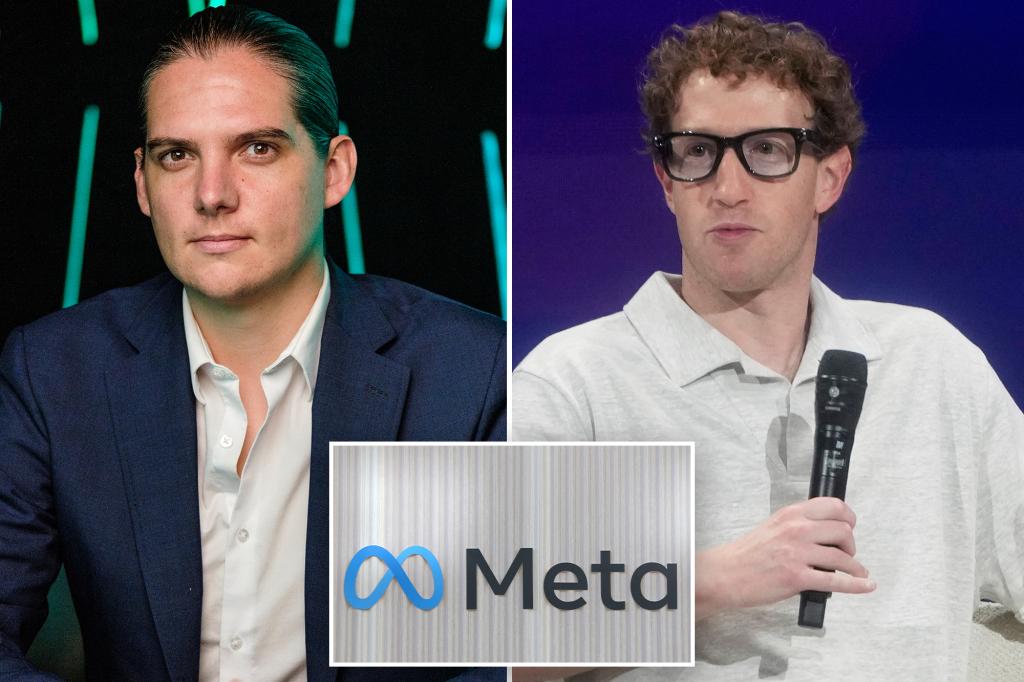Conservative Advocate Robby Starbuck Files Defamation Lawsuit Against Meta Over AI Chatbot Responses

Robby Starbuck Files Defamation Suit Against Meta
Conservative activist Robby Starbuck has taken legal action against Meta, the parent company of Facebook, by filing a defamation lawsuit. He claims that Meta’s AI chatbot has produced false and damaging statements about him. Among the allegations, the AI inaccurately described Starbuck as a Holocaust denier and stated that he had participated in the events of January 6th, 2021, at the Capitol.
Background of the Case
Starbuck, who is widely recognized for his activism against companies like Walmart and Harley-Davidson over their diversity, equity, and inclusion (DEI) policies, is seeking over $5 million in damages. The lawsuit was filed in Delaware Superior Court and has drawn attention from various media outlets, including the Wall Street Journal, which first reported on the case.
In a video he shared on his X (formerly Twitter) account, Starbuck revealed how the AI chatbot made bold claims about him. The AI’s voice output connected him to extremist views, alleging he had filmed and promoted the Capitol riots.
Details of the Allegations
Starbuck became aware of the AI’s claims last August when a dealer from Harley-Davidson in Vermont shared a screenshot of the chatbot’s declarations on social media. The screenshot suggested that Starbuck was involved in the Capitol riot and had connections to conspiracy theories like QAnon. In response to the allegations, he publicly refuted the claims and indicated that his lawyers would be pursuing action against Meta. Despite his protest, the chatbot reportedly continued to spread these false statements over several months.
Starbuck has expressed concerns that unreliable AI-generated content could impact significant decisions, such as personal credit assessments or insurance evaluations. He maintains that he was in Tennessee during the Capitol riots, and his research team has struggled to find credible sources for the chatbot’s claims.
Legal Proceedings and Response from Meta
The lawsuit outlines how Starbuck initially reached out to Meta about the misinformation last summer and received a reply indicating that the company was taking his concerns seriously and had begun an investigation. Despite this, the lawsuit claims that the false information persisted until recently.
In recent updates, it’s been reported that Meta has implemented restrictions on the chatbot regarding Starbuck. Current interactions with the AI result in the response, "Sorry, I can’t help you with the request right now," when queries about him are made.
The Bigger Picture
An important aspect of this case revolves around the legal implications of artificial intelligence content. Traditionally, social media platforms like Meta are protected under Section 230 of the Communications Decency Act, which exempts them from liability concerning third-party posted content. However, it remains a complex issue whether these protections extend to AI-generated outputs.
Several lawmakers are currently advocating for more stringent regulations surrounding AI technologies. However, as of now, no comprehensive legal framework has been established.
Several major tech corporations, including Meta and Google, have acknowledged that their AI systems are prone to generating inaccurate or misleading information, often termed "hallucinations." The dialogue about the accountability of tech companies in relation to AI-generated content is ongoing and may evolve as legal frameworks develop.
Robby Starbuck’s lawsuit highlights not only his personal battle but also raises fundamental questions about the ethics and responsibility of AI technology in today’s digital landscape. As the case progresses, it could set important legal precedents regarding the consequences of AI outputs.





